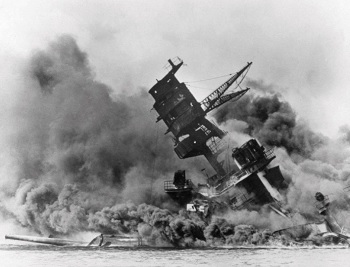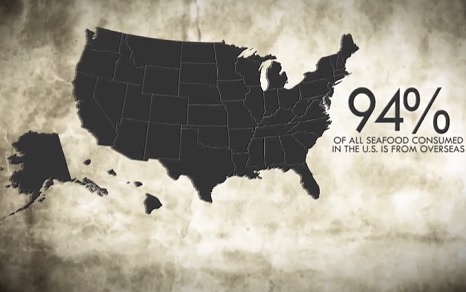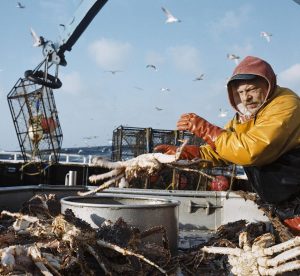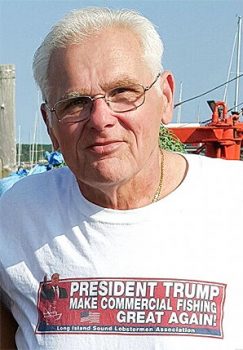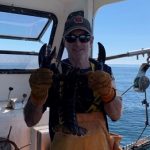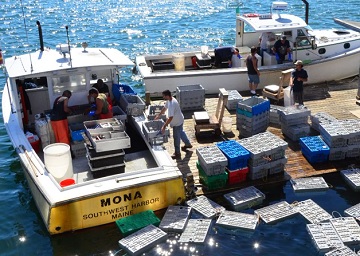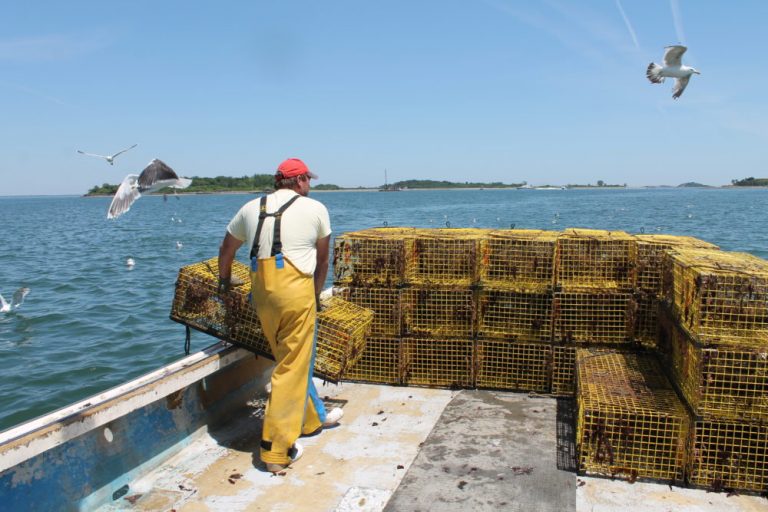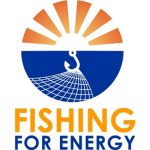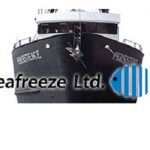Seventy-nine years ago this Dec. 7, the Empire of Japan carried out a sneak attack on American military forces at Pearl Harbor in Hawaii. More than 2,400 people — including 68 civilians — died and almost 1,200 more were injured. The next day President Franklin D. Roosevelt asked Congress for a declaration of war. The speech has become one of the most famous in American history, and reminds us of the service and sacrifices made by our countrymen during World War II. Here is Roosevelt’s address: Mr. Vice President, Mr. Speaker, members of the Senate and the House of Representatives: Yesterday, December 7th, 1941 >click to read< 06:50:
Tag Archives: Congress

A Final 2020 DMR Update from Commissioner Pat Keliher
As 2020 slowly draws to a close, I’d like to share with you one last monthly update on the work of Maine DMR before we close the books on a year of challenges. Pat. New England Fishery Management Council actions,,, DMR has been auditing the data collected through the CARES Act application process,, Additional coronavirus relief has been approved by Congress however it is much too early,,, much more, >click to read< 12:20
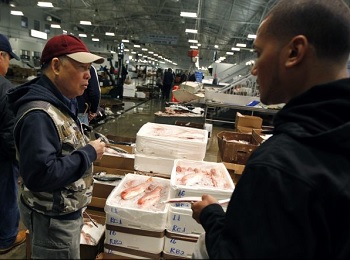
New York’s restaurants and seafood need help from Congress
Each summer in the Bronx, the New Fulton Fish Market teems with fresh seafood harvested by U.S. fishermen in the waters off New England and the Mid-Atlantic. Fishermen land New York’s famous oysters, lobster, Montauk Sea Bream, and countless other offerings that quickly make their way to restaurants like Grand Banks. In New York and New Jersey alone, the commercial fishing industry is valued at $11 billion. When you consider the additional $17 billion market size for the restaurant industry, the value of these two industries is staggering. They fuel our coastal economy, employ thousands, and are significant economic drivers. >click to read< 16:10
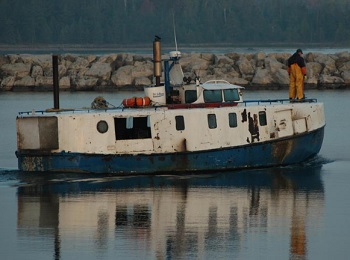
Congress gave $300 million to help fisheries. The Great Lakes got zero. Why were they left out?!
The nationwide shutdown was especially ill-timed for fishers in the Great Lakes. “We had reports of commercial fishermen in Michigan who had a catch with absolutely nowhere to sell it,” Luckily, there was a plan in place to help commercial fishers and charter boats. But when it came time to distribute that funding, most of the Great Lakes states were left out altogether. That came as a shock to many fishers. “Right up until the final hour, a lot of the Great Lakes fishery participants thought that they were going to be included,” says Gravelle. Why the Great Lakes were left out? >click to read< 14:53
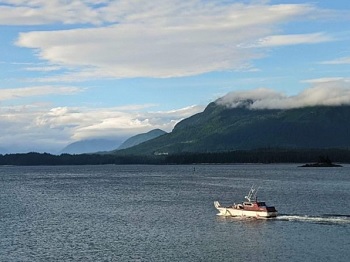
Metlakatla Indian Community suing Gov. Mike Dunleavy and senior state officials over fishing rights
The state’s sole Native reservation says the commercial fishing permit system unfairly prevents local fishermen from harvesting on their traditional fishing grounds, a right Metlakatla says is guaranteed to the tribe by Congress. The tribe of Metlakatla is asking a federal judge to prevent the state from requiring commercial fishing permits for tribal members. The people of Metlakatla have called Annette Island home since the late 19th century. That’s when roughly 820 Tsimshian people migrated with an Anglican missionary from coastal British Columbia to the then-uninhabited islands south of Ketchikan. But they weren’t just after land for a settlement. “The Annette Islands would have been worthless without access to fish and its adjacent fisheries,” attorneys for Metlakatla wrote in a lawsuit filed August 7 in federal court. >click to read< 18:06
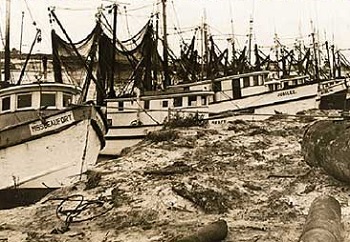
Part 1: Port Canaveral – Culmination of A Long Awaited Dream
The original charter in 1939 established a seven-member board of port commissioners but it was not until 1941 that the Port Authority was authorized to advertise the levying of a tax with a three mill cap within the Port District, which consisted of an area bounded in the south by present-day Pineda Causeway and in the north by the southern boundary of the City of Titusville. In 1945, Congress approved the construction,,, Voters Say “Yes!” to Canaveral Harbor,, Fishermen especially were eager to see it happen and worked hard to get it approved because it would be such a quick outlet to the ocean. The closest other inlets were Ft. Pierce and Mayport (Jacksonville). In November 1947, freeholders of the Port District went to the polls and overwhelmingly approved a bond issue that would pave the way for the digging of Port Canaveral. first of a five-part series, photo’s >click to read< 15:23
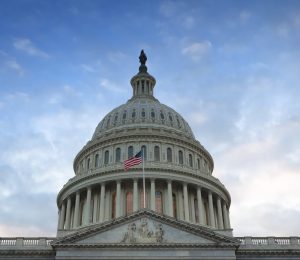
CARES Act – Paycheck Protection Program: Small businesses in Provincetown, on Cape Cod report mixed emergency loan success
After the program received more than 220,000 applications for $66 billion in loans since it opened last Friday, according to the Wall Street Journal, lawmakers are working on adding money with Treasury Secretary Steven Mnuchin asking for $250 billion more.,, “I think the delay is the sheer volume of people applying,” said Chatham commercial fisherman Shannon Eldredge, who works as a navigator for the Massachusetts Fishing Partnership, which assists fishermen and their families with health care and financial help. “I’m hearing it’s going to take longer than anticipated.” Still, she said her organization and clients were pleased that the SBA was answering phones and questions and providing updates on the status of individual applications. >click to read< 11:06
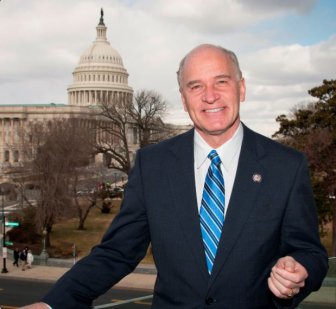
Mass Delegation Urges USDA to Buy American Seafood Under CARES Act
U.S. Rep. William Keating, who represents the 9th Congressional District in Massachusetts, joined some of his Capitol Hill colleagues today in urging the USDA to include U.S. seafood companies in a $9.5 billion program designed to help farmers affected by the coronavirus. Keating, Rep. Seth Moulton, and Sens. Ed Markey and Elizabeth Warren wrote to Agriculture Secretary Sonny Perdue and said the federal government should take steps to buy American seafood through the CARES Act agricultural assistance program. >click to read< 08:41
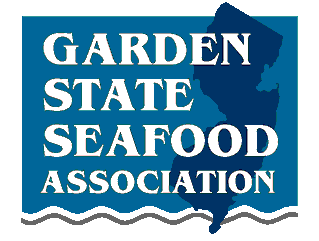
Coronavirus: CARES Act Helps Preserve New Jersey’s Commercial Fishing Industry, Coastal Economy
The recently passed CARES Act provides emergency loans and other forms of relief for American small businesses affected by the ongoing coronavirus crisis. The Act also included over $300 million specifically intended to help the domestic fishing industry, one of the many industries harmed by the ongoing closures necessary to stop the spread of COVID-19. This federal support is essential for the future of New Jersey’s fishing industry, which is a key part of the state’s coastal economy. According to statistics compiled by the Garden State Seafood Association, >click to read< 18:02
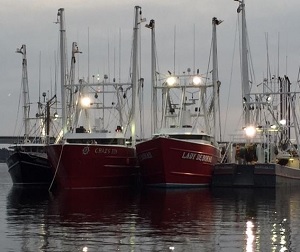
Federal fishries disaster funds granted To NC Fishing Industry
North Carolina will receive $7.7 million in federal fisheries disaster assistance to help the State’s fishing industry recover from Hurricane Florence. An assessment from the National Oceanic and Atmospheric Administration estimated that the September 2018 storm caused $38 million in damages to vessels and businesses and nearly $57 million in lost revenues. >click to read< 19:33
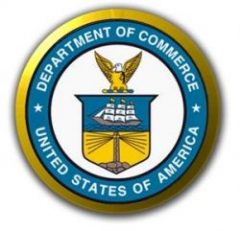
U.S. Commerce allocates $35M for P-cod, Chignik fisheries disaster relief
Fishermen affected by the 2018 Pacific cod and Chignik sockeye disasters will soon have access to about $35 million in relief funding. Secretary of Commerce Wilbur Ross allocated about $65 million to fisheries disaster relief, about $35 million of which is for Alaska,, about $24.4 million will go to the Pacific cod fishery disaster and about $10.3 million to the Chignik sockeye fishery. The funding was appropriated when Congress passed the 2019 Consolidated and Supplemental Appropriations Act. >click to read< 15:02
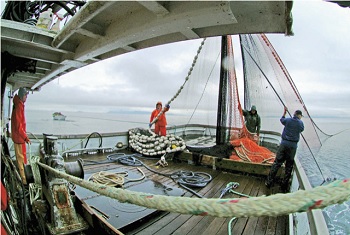
FISH FACTOR: First checks finally set for 2016 pink salmon disaster
It’s been a long time coming but payments should soon be in hand for Alaska fishermen, processors and coastal communities hurt by the 2016 pink salmon run failure, the worst in 40 years. Congress OK’d more than $56 million in federal relief in 2017, but the authorization to cut the money loose languished on NOAA desks in D.C. for more than two years. The payouts got delayed again last October,,, >click to read< 17:18
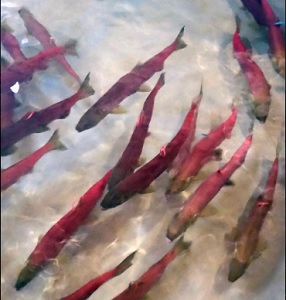
Herrera Beutler calls sea lion bill critical to preserving salmon habitat
For Rep. Jaime Herrera Beutler, R-Battle Ground, the package marks her latest attempt in a series of incremental efforts aimed at boosting salmon runs without resorting to such drastic measures as breaching Columbia or Snake River dams. The congresswoman is a senior member of the House Appropriations Committee. “Now that my sea lion bill has been signed into law, I am working with members from both political parties to take the next critical step: protect salmon habitat and increase hatchery production,” Herrera Beutler said in a media release. >click to read< 12:44
Meanwhile, in Ireland, Call for a seal cull in Killala Bay – >click to read<

Future of offshore fish farming in federal waters at issue in court
The potential environmental and economic consequences posed by proposals for fish farming in federal waters dictate that Congress — not a federal agency — must decide how to regulate the industry, an attorney told a federal appeals court Monday. At issue before the 5th U.S. Circuit Court of Appeals was a September 2018 ruling by a federal judge who threw out National Oceanic and Atmospheric Administration’s rules for fish farms in the Gulf of Mexico, saying Congress never gave the agency authority to make them. >click to read< 14:58
Meet Chris Schillaci who Joins Greater Atlantic Region’s Aquaculture Program! – In December, Chris Schillaci joined the Greater Atlantic Region’s aquaculture program, bringing ten years of experience to his new role. We asked Chris a few questions as he was settling in. >Click to read<

Army Corps of Engineers’ Draft Environmental Impact Statement for Pebble Project is inadequate and underestimates potential impacts
Congress yesterday completed a spending deal that includes a stern warning to the U.S. Army Corps of Engineers regarding its rushed and flawed permitting process for the proposed Pebble Mine in Bristol Bay, Alaska. The warning, included in a report to the appropriations bill that covers the Department of Interior’s spending,,, >click to read< 15:39
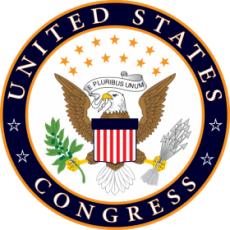
Merkley, Wyden, Pacific Coast Members Announce Major Win for Trawlers in Year-End Spending Bill
Oregon’s Senator Jeff Merkley, joined by Senators Patty Murray (D-WA), Dianne Feinstein (D-CA), Ron Wyden (D-OR), Maria Cantwell (D-WA), and Kamala Harris (D-CA), and U.S. Representatives Peter DeFazio (D-OR-4), Greg Walden (R-OR-2), Jaime Herrera Beutler (R-WA-3), Kurt Schrader (D-OR-5), Suzanne Bonamici (D-OR-1), and Jared Huffman (D-CA-2), today announced a major, bipartisan victory for West Coast trawlers in the 2020 spending bill that Congress is expected to pass this week. The language proposed by Merkley and supported by the other West Coast Senators and Representatives would forgive more than $10 million in accrued loan interest that was forced onto the West Coast groundfishing fleet because of mismanagement by the National Marine Fisheries Service (NMFS). >click to read< 16:49
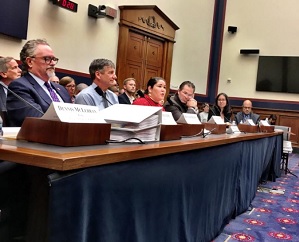
‘You’re not listening to the science’: Pebble Mine fight aired at US House hearing
For Alaskans opposed to the Pebble Mine, a hearing in the U.S. House of Representatives Wednesday was an opportunity to raise the issue on a national stage, and to ask Congress to stop the proposed gold and copper mine upstream from Bristol Bay. But Alaska Congressman Don Young made it clear he didn’t think much of the hearing. He said he’s neither for nor against the mine, but he believes in science-based decision-making.,, The hearing produced sparks and several impassioned speeches, but no specific legislation.>click to read< 11:00

Efforts underway to streamline fisheries disaster relief
With an increasing number of fisheries disaster requests coming from all over the United States, members of Congress and the federal government are looking for ways to improve the relief process.,, Summer 2018 brought disappointing results for many fishermen across Alaska,,, The slow process isn’t unique to Alaska. ways to improve the relief process, introduced Senate Bill 2346 by Sen. Roger Wicker, R-Miss., in July, seeks to speed up that process, in part by expediting relief funds being disbursed to fishermen. It also seeks to add avenues for relief for non-commercial fishermen, including charter operators. >click to read< 15:00
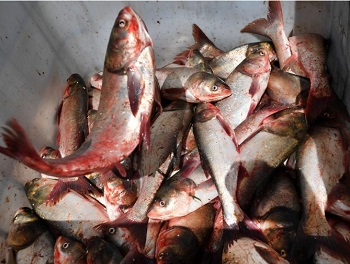
U.S. Senate’s proposed $14 million funding increase to fight Asian carp not matched in House budget
Last month, the Senate Committee on Appropriations approved a funding bill that included $25 million for Asian carp management, a $14 million increase from last year. That money would go to the U.S. Fish and Wildlife Service to be divided nationally for areas dealing with the fish. At the time, U.S. Sen. Lamar Alexander, R-Tenn., was hopeful the bill would give areas including Tennessee more resources to deal with the threat.,, The funding increase would be used to expand a block and tackle plan. The plan includes installing sound barriers that would keep carp from traveling through dams and then paying commercial fishermen to harvest the fish. >click to read< 19:26

Fisheries disaster declared in multiple fisheries, multiple states
Wednesday,, Secretary of Commerce Wilbur Ross announced his determination that commercial fishery failures occurred for multiple fisheries between 2017 and 2019 in Alaska, California, Georgia, and South Carolina, while further finding that a catastrophic regional fishery disaster occurred for Louisiana, Mississippi, and Alabama due to extreme flooding events in the Gulf of Mexico. >click to read< 17:41
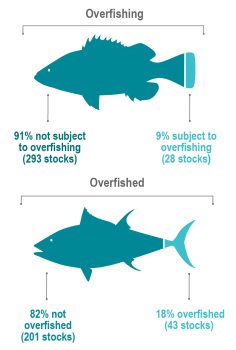
2018 Report to Congress on the Status of U.S. Fisheries
Number of US fish stocks at sustainable levels remains near record high – Today, the National Oceanic and Atmospheric Administration (NOAA) released the Status of U.S. Fisheries Annual Report to Congress, which details the status of 479 federally-managed stocks or stock complexes in the U.S. to identify which stocks are subject to overfishing, are overfished, or are rebuilt to sustainable levels. >click here to read a rundown of the report< To read the report, 2018 Report to Congress on the Status of U.S. Fisheries >click here< 15:26

VOTE THEM OUT! Mass. delegation pushing to advance Vineyard Wind
Members of Congress have become involved in trying to move Vineyard Wind forward, a top Baker administration official said Tuesday, as lobbying intensifies to advance what state officials hope will be the nation’s first commercial-scale offshore wind project. Energy and Environmental Affairs Undersecretary Patrick Woodcock told members of the Massachusetts Clean Energy Center Board Tuesday about the involvement of members of Congress since the Bureau of Ocean Energy Management indicated it would not decide on a key project approval this month, as anticipated. >click to read< 10:37
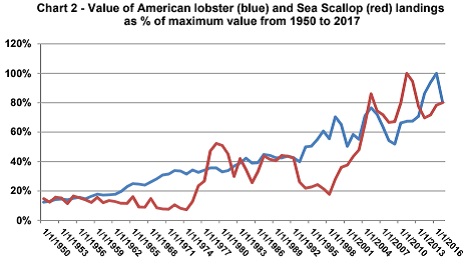
After over forty years of NOAA/NMFS management how are we really doing? Nils Stolpe
The Magnuson-Stevens Fishery Conservation and Management Act – I have seen the focus of government fisheries manage-ment increasingly shift away from the fishermen to the fish. The provisions of the Act as it was originally written were put in place to allow the U.S. fishing industry to regain control of the fisheries in the United States’ highly productive coastal waters,,, The legislation was singularly effective, so effective that within ten years or so of its passage the greatest portion of our domestic fish and shellfish production was being harvested by U.S. fishermen on U.S. vessels. This success was sold to the U.S. public – and the U.S. politicians – as an assault on the “sanctity” of our coastal waters by a burgeoning environmental industry that was (and still is) engaged in non-governmental empire building. This has resulted in a handful of multi-national ENGOs (Environmental Non-Governmental Organizations) that have become at least as influential as the fishing industry in national and international fisheries management. >click to read, and review the links and graphs<16:10
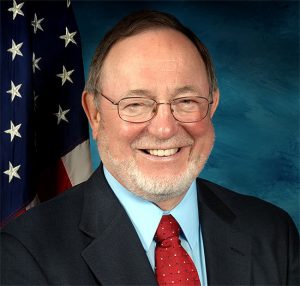
Rep. Young fights fish farms
In his 46 years as Alaska’s lone representative in Congress, Don Young helped toss out foreign fishing fleets from Alaska waters with the onset of the Magnuson-Stevens Fishery Conservation and Management Act in 1976, and today he is intent on doing the same with offshore fish farms. The MSA established an ‘exclusive economic zone’ for US fleets fishing from three to 200 miles from shore. Young’s effort follows a push that began a year ago by over 120 aquaculture and food-related industries to have lawmakers introduce an Advancing the Quality and Understanding of American Aquaculture (AQUAA) Act, which failed to get any traction. The campaign is organized under a new trade group called Stronger America Through Seafood and includes Cargill, Red Lobster, Pacific Seafoods and Seattle Fish Company. >click to read<15:50
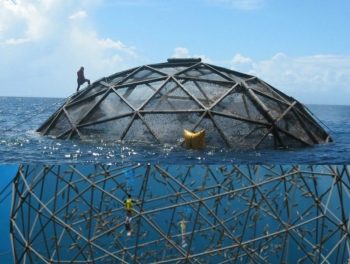
Putting the Brakes on finfish aquaculture in federal waters, Young Introduces Legislation to Protect Wild Fish Populations
Don Young, the Republican congressman for Alaska, has introduced the Keep Fin Fish Free Act, which would specifically prohibit federal agencies from permitting marine finfish aquaculture facilities in federal ocean waters, unless and until Congress passes a future law authorising such permits. “My legislation takes needed steps to prevent the unchecked spread of aquaculture operations by reigning in the federal bureaucracy and empowering Congress to determine where new aquaculture projects should be conducted.>click to read<08:52

Congress Questions US Environmental Group’s Ties To The Chinese Government
A House committee is asking the Natural Resources Defense Council (NRDC), one of the U.S.’s most prominent environmental groups, about its ties to the China’s communist government. Top Republicans on the House Committee on Natural Resources sent a letter to the NRDC asking the group to clarify its two-decade relationship with the Chinese government and question whether the group should register under the Foreign Agents Registration Act. Lawmakers cited recent reports on China’s “vast influence machine” — through funding colleges, think tanks, advocacy groups and others — which it uses to shape its global image, including on environmental issues. >click to read< Find related material in the post comment section regarding the New England Marine Monument, 11:32
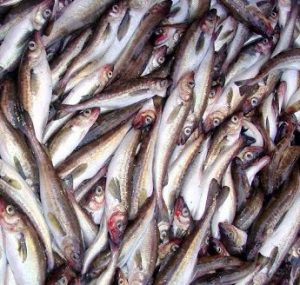
The farm bill’s untold story: What did Congress do for fish sticks?
The farm bill that Congress passed last week will be known for many things. It increases subsidies for farmers and legalizes industrial hemp. But for Alaska, the bigger impact might be what the bill does for fish sticks served in school lunchrooms across America. The National School Lunch Program has for decades required school districts to buy American-made food. But that doesn’t always happen when it comes to fish. “There was a major loophole,” Sen. Dan Sullivan, R-Alaska, said. “Major. That allowed, for example, Russian-caught pollock, processed in China with phosphates, sent back to the United States for purchase in the U.S. school lunch program.”>click to read<






